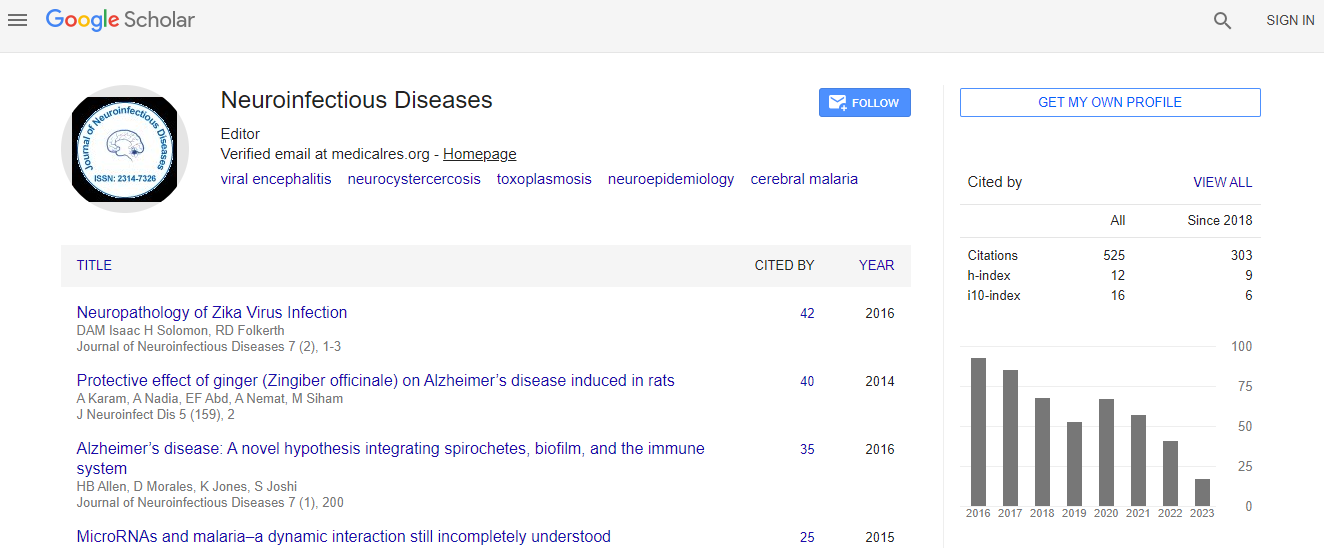Research Article
The Role of Matricaria recutita L. and Asparagus officinalis L. against the Neurotoxicity of Diazinon in Rats
Fahmy G. Elsaid1,2*, Ali A. Shati1 and Mohammad A. Sarhan1
1Biology Department, Science College, King Khalid University, Saudi Arabia
2Zoology Department, Faculty of Science, Mansoura University, Egypt
- *Corresponding Author:
- Fahmy G. Elsaid
Zoology Department,Faculty of Science
Mansoura University, Egypt
Tel: +966536906036 E-mail: fahmygad@mans.edu
Received September 13, 2014; Accepted October 20, 2014; Published October 28, 2014
Citation: Elsaid FG, Shati AA, Sarhan MA (2014) The Role of Matricaria recutita L. and Asparagus officinalis L. against the Neurotoxicity of Diazinon in Rats. J Neuroinfect Dis 6:164. doi: 10.4172/2314-7326.1000164
Copyright: © 2014 Elsaid FG, et al. This is an open-access article distributed under the terms of the Creative Commons Attribution License, which permits unrestricted use, distribution, and reproduction in any medium, provided the original author and source are credited.
Abstract
Diazinon (DZN) is an organophosphorus insecticide that widely used in agriculture. It has a variety of harmful effects on human. Asparagus and chamomile have antioxidant properties and used as antidotes of DZN in this study. Thirty five adult male Sprague Dawely rats were divided into: control group; DZN group: subdivided into two subgroups receiving ¼ LD50 and ½ LD50 dose of DZN for 30 days; DZN and asparagus extract group: subdivided into two subgroups receiving ¼ LD50 and ½ LD50 dose of DZN respectively and treated with asparagus extract (300 mg/kg b. wt.); DZN group and chamomile extract: subdivided into two subgroups receiving DZN respectively, and treated with chamomile extract (300 mg/kg b. wt.). The results herein showed that the biochemical changes associated with the exposure to the DZN are dose dependent. The tumorigenicity of DZN was represented by the significant increase of arginase and the alpha-L- fucosidase in the sera of all DZN groups. In addition, the molecular changes were investigated by the changes in Cu/ Zn-dependent superoxide dismutase, glutathione-S-transferase and glutathione peroxidase enzymes that deflected with administration of rats with DZN. Oral administration of watery extracts of asparagus or chamomile able to restore the total antioxidant capacity as recorded by the increase of superoxide dismutase, glutathione content and their relative enzymes in the investigated tissues. Due to their antioxidants, it is recommended asparagus and chamomile as anti-neurotoxic agents.

 Spanish
Spanish  Chinese
Chinese  Russian
Russian  German
German  French
French  Japanese
Japanese  Portuguese
Portuguese  Hindi
Hindi 
